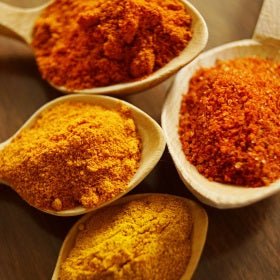Research in the world of nutrition updates on a daily basis and we’re learning more nutritional benefits on top of commonly known benefits all the time. This week’s Nutrition News covers the very latest research, including how betaine could support footballers in more ways than its role in homocysteine metabolism that it’s known for.
Find out more here.
Betaine could improve physical performance in footballers
Betaine is made in the body but can also be consumed in food, such as spinach and seafood, and supplements. It is otherwise known as trimethylglycine (TMG) and is important for normal homocysteine metabolism, however, a recent study has uncovered that the nutrient might play a part in supporting the body in other ways.
Research, as reported by NutraIngredients, by scientists affiliated with the University of Isfahan (Iran), the University of Lynchburg (USA), the University of Granada (Spain), and the University of Extremadura (Spain) has found that betaine could support physical performance through a study that tested the muscular strength, sprinting, and aerobic capacity of young, male professional football players.
The double blind, placebo controlled, randomised trial took place over 14 weeks of competition and training and consisted of the participants either being given two grams per day of betaine or a placebo. The researchers found that all players displayed significant improvements in their VO2max, anaerobic peak power, and muscular strength however, these improvements were greater in the betaine supplemented group. This suggests that betaine could have a promising role in aiding sports performance, although further research is needed to clarify the results.
The link between vitamin D and cardiovascular health
We all know that vitamin D is vital for bone health but a recent study from researchers at the University of South Australia, as reported by Science Daily, has suggested that the essential vitamin could also support cardio health.
For the first time, researchers have linked vitamin D deficiency with poor cardiovascular health, suggesting that optimum levels of the so-called ‘sunshine vitamin’ could support heart health. As cardiovascular diseases remain the most prominent cause of death around the world, findings such as these are welcomed by the medical community.
The study found that participants with the lowest levels of vitamin D had a risk of heart disease that was more than double that of the participants whose levels were sufficient.
Speaking of the findings, UniSA's Prof Elina Hyppönen said, “Our results are exciting as they suggest that if we can raise levels of vitamin D within norms, we should also affect rates of CVD. In our study population, by increasing vitamin D-deficient individuals to levels of at least 50 nmol/L, we estimate that 4.4 per cent of all CVD cases could have been prevented.”
Signs of iron deficiency
Iron is vital for normal cognitive function and brain health, normal energy-yielding metabolism, the formation of red blood cells, and the transportation of oxygen around the body, among other important functions within the body. Therefore, it is imperative that we recognise the signs of iron deficiency in order to mitigate against it and keep the body working as it should.
This recent video from Healthline suggests some of the most common signs of iron deficiency to look out for, which includes:
- Unusual tiredness
- Paler skin than usual
- Shortness of breath
- Headaches
- Heart palpitations
- Dry and damaged hair and skin
- Swelling and soreness of the tongue and mouth
- Restless legs
- Brittle and spoon-shaped fingernails
While one of these symptoms alone may not ascertain deficiency, it is important that if you notice these symptoms to consult your healthcare practitioner who can perform a blood test to establish your iron levels and establish the best route forward.
Iron deficiency can be caused by any number of things, such as restricted diet, but you also have additional iron requirements if you’re pregnant, for example, so it is important to test your levels if you think there’s any reason you might need supplementary iron.
Share your thoughts
Agree with the findings in this week’s Nutrition News? Share your thoughts with us on Facebook and Twitter.
 Alison is the Founder of Metabolics who writes about Metabolics updates, events and natural healthcare. Her experience and passion for natural supplements and healthcare comes from her years of experience as a practising osteopath, having founded Metabolics in her search for high quality, natural products in her own work. Alison has been a qualified and practising Osteopath since 1981 and regularly gives seminars on a range of healthcare subjects to the wider practitioner community helping share her knowledge and experience.
Alison is the Founder of Metabolics who writes about Metabolics updates, events and natural healthcare. Her experience and passion for natural supplements and healthcare comes from her years of experience as a practising osteopath, having founded Metabolics in her search for high quality, natural products in her own work. Alison has been a qualified and practising Osteopath since 1981 and regularly gives seminars on a range of healthcare subjects to the wider practitioner community helping share her knowledge and experience.




